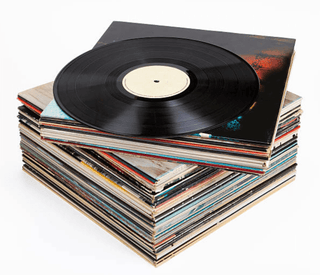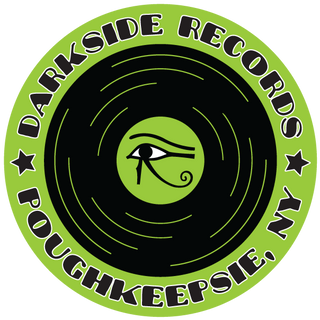Fabrizio Falasca- Viotti: Duos for 2 Violins

Giovanni Battista Viotti composed 29 violin concertos, three sinfonie concertanti, a cello concerto, countless quartets, at least 20 trios for two violins and cello and an impressive array of violin duos, four of the latter recorded here. Described in contemporary reports as a generous and highly charismatic musician driven by idealistic zeal, he is now universally recognised as one of the greatest violinists of all time. In hindsight, it is clear that he and his vast oeuvre occupied a key historical position. He appeared at a pivotal moment between the end of the ancien regime and the start of the modern era: a period when, in social terms, music began to escape the courts and entertain the growing middle classes, laying the foundations for modern concert-going and the figure of the freelance musician. A period when various national traditions, both in terms of instruments and compositions, began to meet and influence each other with unprecedented dynamism, and when the formal rigour of Classicism gave way to the pathos of Romanticism. Viotti was at the heart of this time of dramatic change: the standard-bearer for a centuries-old Italian violin school that included Arcangelo Corelli, Antonio Vivaldi, Pietro Locatelli, Giuseppe Tartini and Viotti's teacher Gaetano Pugnani. He took this esteemed group's technical achievements away from the Baroque and Galant style into a new era, with the arrival of Niccolò Paganini just around the corner. He was admired by Mozart, inspired the virtuosity of Paganini's concertos, was central because of his years lived in London to the evolution of British musical life, and must surely be considered the most significant figure in the entire French violin school. Later violin giants Pierre Rode, Rodolphe Kreutzer and Pierre Baillot were all strongly influenced by his work Viotti's renowned cantabile style is echoed in the violin writing of both Ludwig van Beethoven and Johannes Brahms and is amply represented in the four violin duos on this album. Other information: - Recorded November 2022, Cagliari, Italy - Booklet in English contains liner notes by Carlo Goldstein - Gianmaria Melis plays a 1745 Sanctus Seraphin; Fabrizio Falasca plays a 1727 J. Guarneri - The Italian liner notes are available for download at www. Brilliantclassics. com - Giovanni Battista Viotti (1755-1824) received his musical education from Gaetano Pugnani. He served for a short time at the Savoy Court in Turin but soon he spread his wings and travelled to Paris, where he was an instant success as a supreme violin virtuoso. He served for a time at the court of Versailles before he founded an opera house in Paris (Theâtre de Monsieur). The French revolution urged him to go abroad and he settled in London, where he featured in the Hanover Square concert series and was active as a concert organizer and impresario, as well as one of the founders of the Philharmonic Society of London. - Viotti was an influential violin player and teacher. He composed violin concertos, string quartets, and other chamber music for strings. Based on the principles of the Viennese Classics it hints at more romantic feelings of times to come. - This new recording presents the duos for 2 violins, music of great charm, rich in melodies and brilliantly written for both instruments, which are fully equal to each other. - Played by Fabrizio Falasca and Gianmaria Melis, playing a 1727 Guerneri and a 1745 Sanctus Seraphin violin.
Giovanni Battista Viotti composed 29 violin concertos, three sinfonie concertanti, a cello concerto, countless quartets, at least 20 trios for two violins and cello and an impressive array of violin duos, four of the latter recorded here. Described in contemporary reports as a generous and highly charismatic musician driven by idealistic zeal, he is now universally recognised as one of the greatest violinists of all time. In hindsight, it is clear that he and his vast oeuvre occupied a key historical position. He appeared at a pivotal moment between the end of the ancien regime and the start of the modern era: a period when, in social terms, music began to escape the courts and entertain the growing middle classes, laying the foundations for modern concert-going and the figure of the freelance musician. A period when various national traditions, both in terms of instruments and compositions, began to meet and influence each other with unprecedented dynamism, and when the formal rigour of Classicism gave way to the pathos of Romanticism. Viotti was at the heart of this time of dramatic change: the standard-bearer for a centuries-old Italian violin school that included Arcangelo Corelli, Antonio Vivaldi, Pietro Locatelli, Giuseppe Tartini and Viotti's teacher Gaetano Pugnani. He took this esteemed group's technical achievements away from the Baroque and Galant style into a new era, with the arrival of Niccolò Paganini just around the corner. He was admired by Mozart, inspired the virtuosity of Paganini's concertos, was central because of his years lived in London to the evolution of British musical life, and must surely be considered the most significant figure in the entire French violin school. Later violin giants Pierre Rode, Rodolphe Kreutzer and Pierre Baillot were all strongly influenced by his work Viotti's renowned cantabile style is echoed in the violin writing of both Ludwig van Beethoven and Johannes Brahms and is amply represented in the four violin duos on this album. Other information: - Recorded November 2022, Cagliari, Italy - Booklet in English contains liner notes by Carlo Goldstein - Gianmaria Melis plays a 1745 Sanctus Seraphin; Fabrizio Falasca plays a 1727 J. Guarneri - The Italian liner notes are available for download at www. Brilliantclassics. com - Giovanni Battista Viotti (1755-1824) received his musical education from Gaetano Pugnani. He served for a short time at the Savoy Court in Turin but soon he spread his wings and travelled to Paris, where he was an instant success as a supreme violin virtuoso. He served for a time at the court of Versailles before he founded an opera house in Paris (Theâtre de Monsieur). The French revolution urged him to go abroad and he settled in London, where he featured in the Hanover Square concert series and was active as a concert organizer and impresario, as well as one of the founders of the Philharmonic Society of London. - Viotti was an influential violin player and teacher. He composed violin concertos, string quartets, and other chamber music for strings. Based on the principles of the Viennese Classics it hints at more romantic feelings of times to come. - This new recording presents the duos for 2 violins, music of great charm, rich in melodies and brilliantly written for both instruments, which are fully equal to each other. - Played by Fabrizio Falasca and Gianmaria Melis, playing a 1727 Guerneri and a 1745 Sanctus Seraphin violin.



